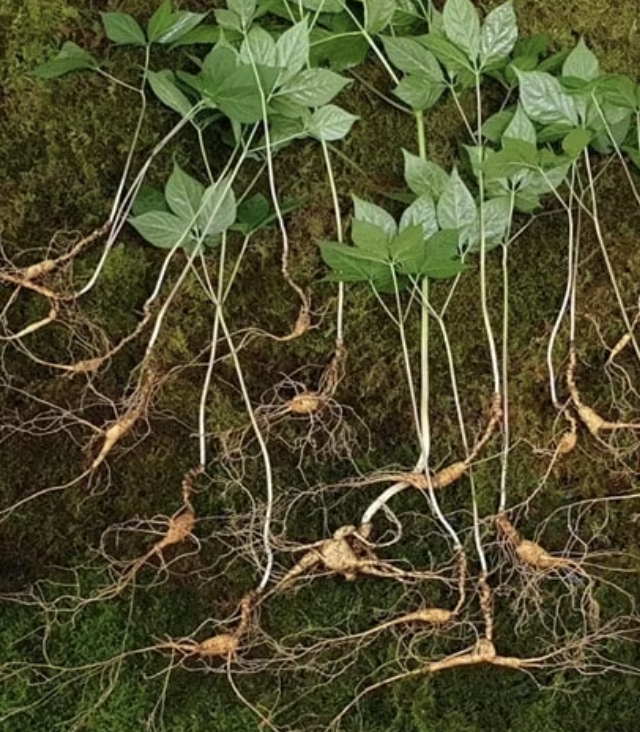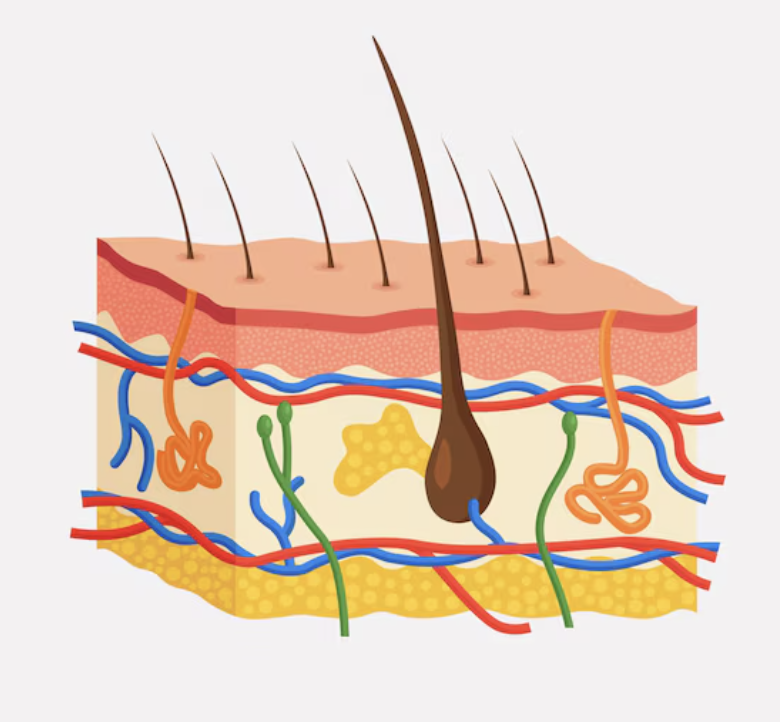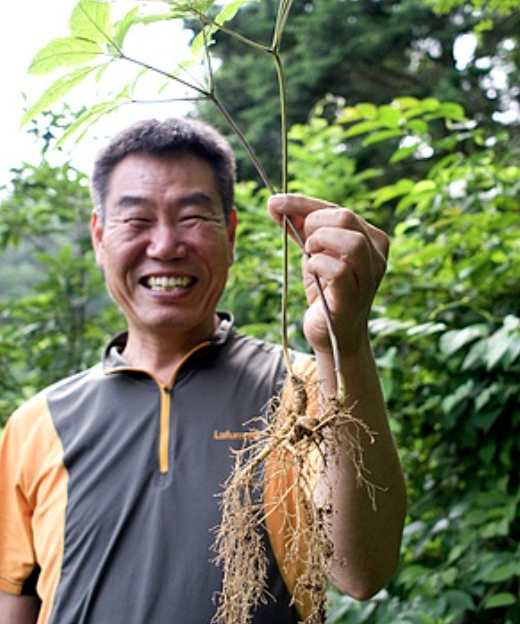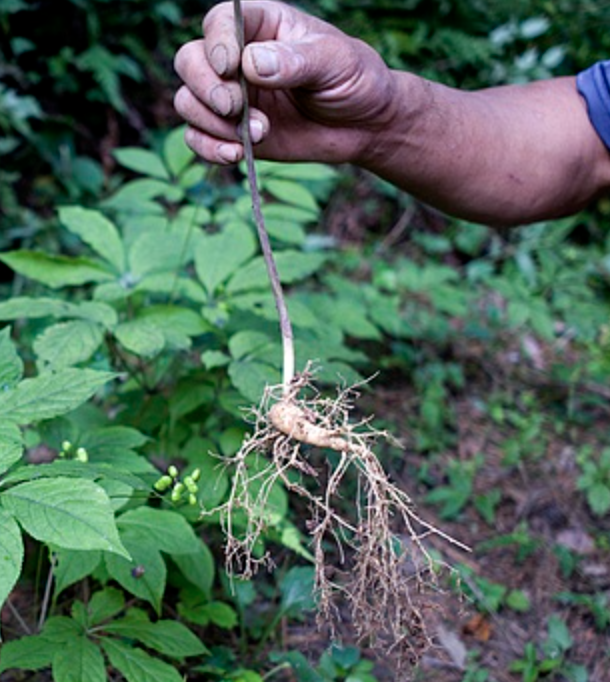Home | Shop | Learn About Ginseng | Ginsenoside per Product | Blog | Our Story | Refer & Earn | Contact Us | Cart | Checkout | My Account




Gene Research on Wild Ginseng Reveals New Antioxidant Effects
The world of medicinal herbs is constantly evolving, and recent breakthroughs in genetic research are shedding new light on the powerful properties of wild ginseng. Known for its medicinal uses for thousands of years, wild ginseng has been traditionally valued for its ability to promote vitality, energy, and overall health. However, scientists have now discovered a new, unexpected benefit of wild ginseng—its potent antioxidant properties, revealed through cutting-edge gene research. These new findings may significantly enhance our understanding of the herb’s therapeutic potential.
The Importance of Antioxidants in Health
Antioxidants are compounds that help protect the body from oxidative stress, which occurs when free radicals—unstable molecules—damage cells and tissues. Oxidative stress is linked to a wide range of health conditions, including aging, heart disease, cancer, and neurodegenerative diseases like Alzheimer’s. Antioxidants neutralize free radicals, preventing or slowing down the damage caused by oxidative stress.
In recent years, antioxidants have gained significant attention for their potential to combat chronic diseases and promote longevity. With this in mind, understanding how different plants and herbs can influence oxidative stress is crucial. Wild ginseng, with its rich history in traditional medicine, has now been confirmed as a powerful natural source of antioxidants.
Wild Ginseng’s Unique Genetic Profile
Recent genetic studies have identified key genes in wild ginseng that are responsible for the production of its antioxidant compounds. These compounds include ginsenosides, which are already well-known for their medicinal properties, but researchers have discovered that the plant produces additional bioactive molecules that enhance its antioxidant activity.
Through comprehensive genomic sequencing, scientists have mapped out the wild ginseng genome, identifying various genes that play a role in the plant’s response to environmental stress. By analyzing these genes, researchers found that wild ginseng’s genetic makeup enables it to produce a higher quantity of antioxidants compared to cultivated ginseng. These findings offer valuable insights into how wild ginseng is able to thrive in harsh, natural environments and why it has been so highly valued in traditional medicine for its health benefits.
Gene Research: Unlocking New Health Benefits
The discovery of the new antioxidant effects in wild ginseng could have far-reaching implications for both the scientific community and the health and wellness industry. Here are some of the potential benefits that could result from further research into wild ginseng’s antioxidant properties:
Enhanced Anti-Aging Effects: As oxidative stress is a significant factor in the aging process, the discovery of wild ginseng’s powerful antioxidant effects suggests that it could be used to slow down signs of aging. By neutralizing free radicals, wild ginseng may help maintain skin health, prevent wrinkles, and protect against age-related diseases such as macular degeneration.
Cancer Prevention: Oxidative stress has long been linked to the development of cancer, and antioxidants are known for their potential to reduce the risk of certain types of cancer. With its newfound antioxidant properties, wild ginseng may hold promise as a preventive measure against cancer, particularly due to the presence of unique bioactive compounds that are not found in cultivated ginseng.
Cardiovascular Health: Free radicals contribute to the development of cardiovascular diseases by promoting inflammation and damage to blood vessels. Wild ginseng’s antioxidant properties could play a vital role in reducing this damage, improving circulation, and promoting overall heart health. This discovery opens up new possibilities for using wild ginseng in the treatment or prevention of heart disease.
Neuroprotection: Oxidative stress is a major contributor to neurodegenerative diseases like Alzheimer’s and Parkinson’s disease. The antioxidant compounds in wild ginseng may help protect brain cells from oxidative damage, potentially slowing the progression of these diseases and supporting cognitive function.
Immune System Support: By neutralizing free radicals and reducing oxidative stress, wild ginseng may also enhance the immune system. Antioxidants help to strengthen the body’s defense mechanisms, improving its ability to fight infections and diseases.
Sustainability and the Future of Wild Ginseng Research
While the new antioxidant discoveries are exciting, they also raise important questions about the future of wild ginseng conservation. Wild ginseng is considered a rare and endangered plant, primarily due to overharvesting and habitat destruction. As the demand for wild ginseng increases, it is crucial to ensure sustainable harvesting practices and protect the natural habitats where the plant thrives.
Researchers are now looking into ways to cultivate wild ginseng in controlled environments, preserving its genetic diversity and preventing further depletion of wild populations. Additionally, with the newfound antioxidant properties of wild ginseng, it is expected that demand for the plant will grow, increasing the need for responsible farming and harvesting methods.
Conclusion: A Promising Future for Wild Ginseng
The discovery of wild ginseng’s enhanced antioxidant effects is a major milestone in the field of herbal medicine and gene research. These findings highlight the plant’s potential as a natural remedy for a variety of health conditions linked to oxidative stress, including aging, cardiovascular diseases, cancer, and neurodegenerative disorders.
With continued research into the plant’s genetic profile and its antioxidant properties, wild ginseng could become an even more important tool in the fight against chronic diseases and aging. As we unlock more of the plant’s secrets, we gain a greater understanding of how its unique genetic makeup allows it to produce such powerful bioactive compounds, making it a true gift from nature.
As the research continues, it’s essential to ensure that wild ginseng is harvested sustainably and responsibly, so future generations can continue to benefit from this remarkable plant. With its newfound antioxidant properties, wild ginseng is poised to become an even more valuable asset in the world of natural medicine and wellness.
#WildGinseng, #Antioxidants, #Ginsenosides, #GeneResearch, #PlantGenetics, #HealthBenefits, #OxidativeStress, #AntiAging, #CancerPrevention, #CardiovascularHealth, #Neuroprotection, #ImmuneSupport, #HerbalMedicine, #SustainableHarvesting










Leave A Comment
You must be logged in to post a comment.